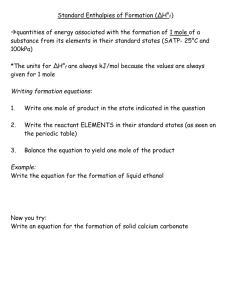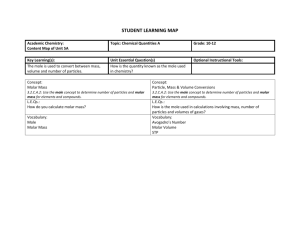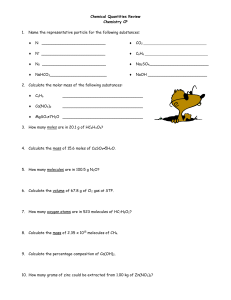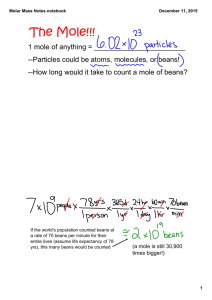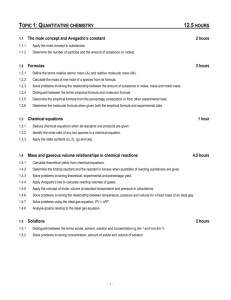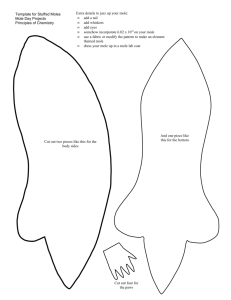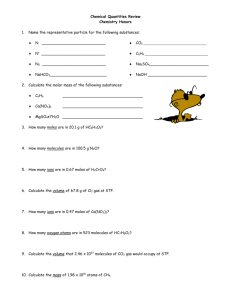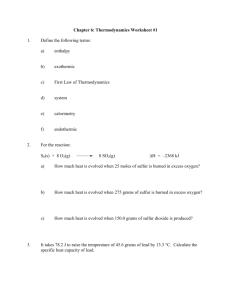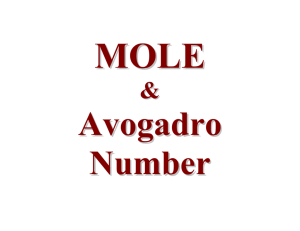Chapter 6: Thermodynamics Worksheet #2
advertisement
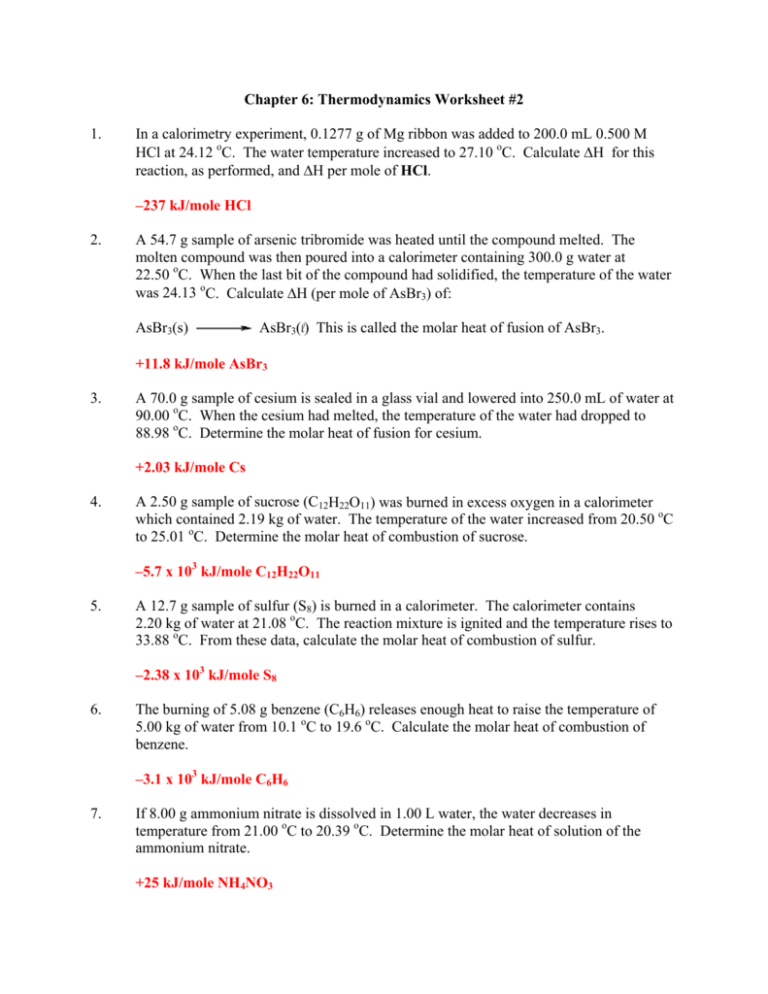
Chapter 6: Thermodynamics Worksheet #2 1. In a calorimetry experiment, 0.1277 g of Mg ribbon was added to 200.0 mL 0.500 M HCl at 24.12 oC. The water temperature increased to 27.10 oC. Calculate ∆H for this reaction, as performed, and ∆H per mole of HCl. –237 kJ/mole HCl 2. A 54.7 g sample of arsenic tribromide was heated until the compound melted. The molten compound was then poured into a calorimeter containing 300.0 g water at 22.50 oC. When the last bit of the compound had solidified, the temperature of the water was 24.13 oC. Calculate ∆H (per mole of AsBr3) of: AsBr3(s) AsBr3(l) This is called the molar heat of fusion of AsBr3. +11.8 kJ/mole AsBr3 3. A 70.0 g sample of cesium is sealed in a glass vial and lowered into 250.0 mL of water at 90.00 oC. When the cesium had melted, the temperature of the water had dropped to 88.98 oC. Determine the molar heat of fusion for cesium. +2.03 kJ/mole Cs 4. A 2.50 g sample of sucrose (C12H22O11) was burned in excess oxygen in a calorimeter which contained 2.19 kg of water. The temperature of the water increased from 20.50 oC to 25.01 oC. Determine the molar heat of combustion of sucrose. –5.7 x 103 kJ/mole C12H22O11 5. A 12.7 g sample of sulfur (S8) is burned in a calorimeter. The calorimeter contains 2.20 kg of water at 21.08 oC. The reaction mixture is ignited and the temperature rises to 33.88 oC. From these data, calculate the molar heat of combustion of sulfur. –2.38 x 103 kJ/mole S8 6. The burning of 5.08 g benzene (C6H6) releases enough heat to raise the temperature of 5.00 kg of water from 10.1 oC to 19.6 oC. Calculate the molar heat of combustion of benzene. –3.1 x 103 kJ/mole C6H6 7. If 8.00 g ammonium nitrate is dissolved in 1.00 L water, the water decreases in temperature from 21.00 oC to 20.39 oC. Determine the molar heat of solution of the ammonium nitrate. +25 kJ/mole NH4NO3 7. How much energy would you get from eating 5.00 g sucrose? Assume that the reaction occurs like a combustion reaction (the products are carbon dioxide gas and liquid water). –83 kJ
